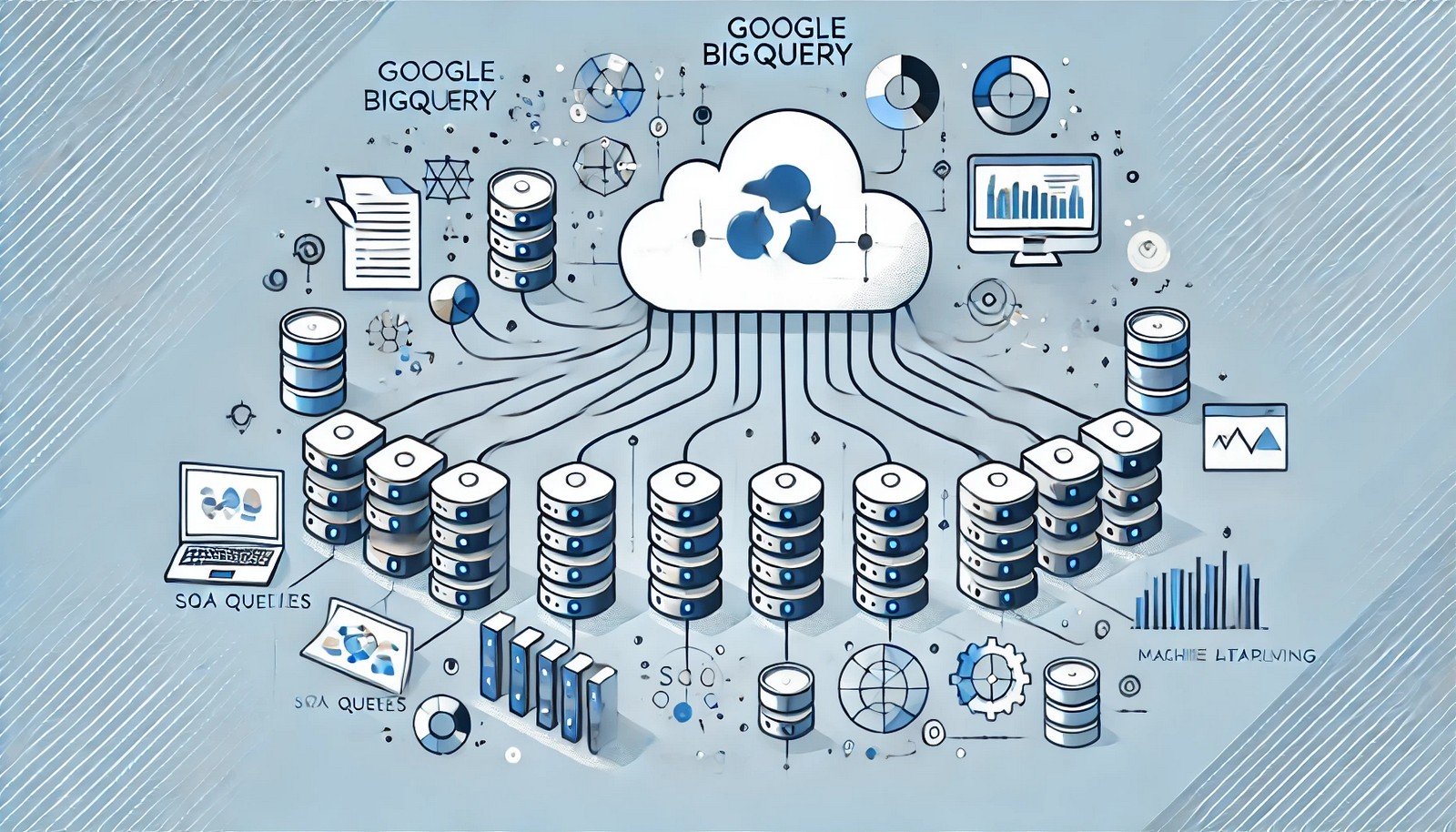Google BigQuery
 (Representational Image | Source: Dall-E)
(Representational Image | Source: Dall-E)
Quick Navigation:
- Google BigQuery Definition
- Google BigQuery Explained Easy
- Google BigQuery Origin
- Google BigQuery Etymology
- Google BigQuery Usage Trends
- Google BigQuery Usage
- Google BigQuery Examples in Context
- Google BigQuery FAQ
- Google BigQuery Related Words
Google BigQuery Definition
Google BigQuery is a fully managed, serverless data warehouse that allows organizations to analyze vast amounts of data using SQL-like queries. Designed to handle large-scale datasets, BigQuery provides high-speed analytics by leveraging the power of Google's infrastructure. It supports real-time analytics, machine learning integrations, and seamless scaling for diverse business needs.
Google BigQuery Explained Easy
Imagine you have a giant notebook where you keep all your favorite things—movies, songs, or places you've visited. Now, if you wanted to find something quickly, like the name of a specific movie, you'd need a super-fast search engine to flip through all the pages. Google BigQuery is like that search engine, but for really, really big notebooks of data.
Google BigQuery Origin
Introduced in 2010 as part of Google's cloud offerings, BigQuery was developed to solve challenges in big data analytics. It evolved as a tool to process terabytes of data in seconds, empowering businesses to derive actionable insights from their datasets.
Google BigQuery Etymology
The name "BigQuery" combines "Big," signifying its focus on handling large datasets, and "Query," referring to the SQL-like querying language it supports.
Google BigQuery Usage Trends
Google BigQuery has become increasingly popular in recent years due to its serverless nature, cost-efficiency, and integration with other Google Cloud tools. Industries such as retail, healthcare, and entertainment leverage BigQuery for real-time data processing, predictive analytics, and reporting.
Google BigQuery Usage
- Formal/Technical Tagging:
- Data Analytics
- Cloud Computing
- Big Data Processing - Typical Collocations:
- "run a BigQuery job"
- "BigQuery SQL queries"
- "BigQuery for analytics"
- "BigQuery integration with Looker"
Google BigQuery Examples in Context
- A retailer uses Google BigQuery to analyze customer purchases and personalize marketing campaigns.
- Healthcare organizations leverage BigQuery to process patient data for better diagnosis and treatment planning.
- Media companies run real-time analytics on streaming data using BigQuery for content recommendations.
Google BigQuery FAQ
- What is Google BigQuery?
It is a fully managed, serverless data warehouse for scalable analytics. - How does BigQuery differ from traditional databases?
BigQuery is serverless, supports SQL-like querying, and scales dynamically without requiring manual infrastructure management. - What types of data can BigQuery process?
Structured, semi-structured, and unstructured data from various sources like logs, spreadsheets, and APIs. - Does BigQuery support machine learning?
Yes, it integrates with Google Cloud AI tools to build and deploy machine learning models. - Is Google BigQuery suitable for small businesses?
Yes, BigQuery’s pricing model is flexible, making it accessible for businesses of all sizes. - How secure is BigQuery?
It offers enterprise-grade security, including encryption and IAM roles. - Can BigQuery handle real-time data processing?
Yes, it supports real-time analytics with tools like Pub/Sub and Dataflow. - How do businesses benefit from BigQuery?
By enabling faster decision-making through large-scale data analysis. - What skills are required to use BigQuery?
Basic knowledge of SQL and familiarity with data analytics tools. - Is BigQuery integrated with other Google services?
Yes, it integrates seamlessly with services like Google Analytics, Cloud Storage, and Looker.
Google BigQuery Related Words
- Categories/Topics:
- Cloud Analytics
- Data Warehousing
- Business Intelligence
Did you know?
Google BigQuery once processed over 35 terabytes of data in a single query for NASA's Kepler Space Telescope project, helping astronomers identify Earth-like planets. This highlights BigQuery’s capacity for handling massive datasets efficiently.
PicDictionary.com is an online dictionary in pictures. If you have questions or suggestions, please reach out to us on WhatsApp or Twitter.Authors | Arjun Vishnu | @ArjunAndVishnu

I am Vishnu. I like AI, Linux, Single Board Computers, and Cloud Computing. I create the web & video content, and I also write for popular websites.
My younger brother, Arjun handles image & video editing. Together, we run a YouTube Channel that's focused on reviewing gadgets and explaining technology.



Comments powered by CComment